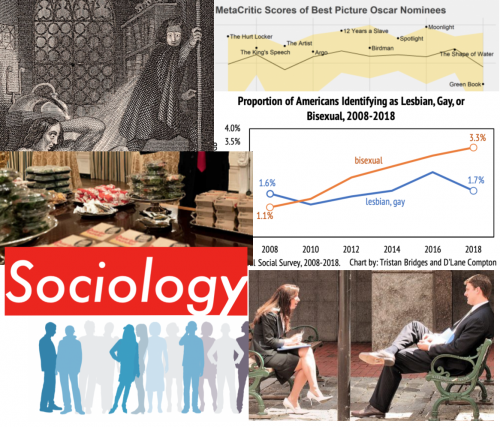
This month, Sociological Images turns twelve! It has been a busy year with some big changes backstage, so today I’m rounding up a dozen of our top posts as we look forward to a new academic year.
The biggest news is that the blog has a new home. It still lives on my computer (and The Society Pages’ network), but that home has moved east as I start as an assistant professor at UMass Boston Sociology. It’s a great department with wonderful colleagues who share a commitment to publicly-oriented scholarship, and I am excited to see what we can build in Boston!
This year, readers loved the recent discovery that many of the players on the US Women’s National Team were sociology majors and a look at the the sociology of streetwear. We covered high-class hoaxes in the wake of the Fyre Festival documentaries, looked at who gets to win board games on TV, and followed the spooky side of science for the 200th anniversary of Frankenstein. Gender reveal parties were literally booming, unfortunately.
We also had a bunch of stellar guest posts this year, tackling all kinds of big questions like why people freaked out about fast food at the White House, why Green Book was a weird Oscar win, why people sometimes collect racist memorabilia, and why we often avoid reading the news. My personal favorites included a research roundup on women’s expertise and a look at the boom in bisexual identification in the United States. Please keep sending in guest posts! I want to feature your work. Guidelines are here, and you can always reach out via email or Twitter DM.
Finally, big thanks to all of you who read the blog actively, pass along posts to friends and family, and bring it into your classes. We keep this blog running on a zero-dollar budget, Creative Commons licensing, and a heavy dose of the sociological imagination that comes with your support. Happy reading!
Evan Stewart is an assistant professor of sociology at University of Massachusetts Boston. You can follow his work at his website, or on BlueSky.


